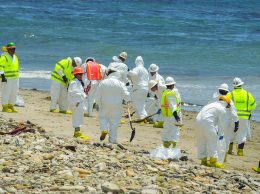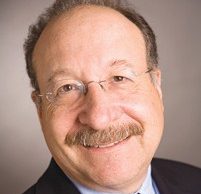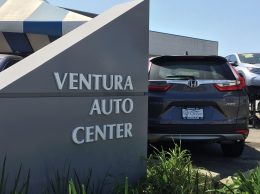Pacific Capital Bancorp’s $500 million rescue by a private equity firm would spread the pain among shareholders, debt holders and the U.S. Treasury. But it also spreads the upside if the bank recovers, and in the meantime it might be the only way to keep the Santa Barbara Bank & Trust name alive in the Tri-Counties.

Pacific Capital is by far the largest banking company in the region, with a $4.9 billion loan portfolio and more than 30 branches spread throughout the Tri-Counties. It has struggled with $500 million in losses, driven by bad real estate loans, since the second quarter of last year. A year ago, Pacific Capital entered a voluntary agreement with federal regulators to boost its capital levels, but it missed the targets laid out for it each step of the way.
That left the company little choice but to find a major investor. At about 3:45 a.m. on April 29, the company signed a $500 million deal to sell up to 91 percent of Pacific Capital to Ford Financial Fund. The private equity fund is controlled by Texas billionaire Gerald Ford, who made his fortune buying troubled banks, cleaning them up and selling them for huge returns.
“Not a lot of people have the appetite for this level of risk or trouble,” Ford told the Business Times. “We’re putting our money where our mouth is.”
Ford has his appetites, but no current bank of his own. That means the Santa Barbara Bank & Trust logo is likely to remain, experts said.
“The fact that it’s not another bank buying them is probably a good thing,” said Janet Garufis, the chief executive officer of Montecito Bank & Trust and a 35-year banking veteran. “Hopefully, it will retain jobs.”
Inside the deal
In exchange for putting half a billion dollars at risk, Ford is asking for deep concessions all around.
The deal would translate the $180 million in Troubled Asset Relief Program funds the bank took on at the height of the financial crisis into common stock at 20 cents a share. It would ask some debt holders to cash out at as little as 20 cents to 30 cents on the dollar — provisions the bank will need to get approved in order to seal the deal.
At that stage, Ford would pay 20 cents a share for newly created stock. His fund would own 91 percent of the company’s common stock, the U.S. Treasury would own 7 percent and today’s shareholders would own 2 percent.
“We wouldn’t have entered into an agreement like this we didn’t feel we had a strong chance of closing,” George Leis, CEO of Pacific Capital, told the Business Times.
The proposal would also give shareholders — who have seen prices drop from more than $30 per share in recent years to around the $1 mark — a chance to buy in at the same 20-cents-a-share price as Ford. Current investors would be allowed to buy as much as 20 percent of the company’s total stock, changing the final ownership profile and raising as much as $100 million in capital for the bank.
Montecito investor Herbert Tews, who recently sold Pacific Capital shares at a profit after buying in at around $2, said he was intrigued by the possibility of investing again. Shareholders will be able to exercise a right to buy an additional 13 shares at 20 cents for every share purchased under the deal.
“They have a leadership position in the market and they’ve been able to grow deposits,” despite taking huge losses, Tews said. “There is tremendous wealth in the city of Santa Barbara.”
But today’s investors are hurting. At the company’s annual shareholder meeting April 29, Irwin Pomerantz, a Los Angeles accountant who has held stock in the company since it was first offered 50 years ago, thanked Leis for taking action to save Pacific Capital. But he said he held Leis and the rest of Pacific Capital’s management responsible for the bank’s woes.
“I frankly find it hard to forgive you for what’s happened,” Pomerantz said. “It’s like reaching out to save myself from drowning.”
Ford is aware of the how badly Pacific Captial needs the cash. “[The deal] requires everybody in the capital structure to work together,” he said. “Basically, it boils down to, Can they be better economically advantaged in a transaction such as this, versus the alternative?”
A tale of two sales
Without Ford’s cash, one alternative is that Pacific Capital could fail, wiping out shareholders, debt holders and the U.S. Treasury’s stake alike.
“It was evident that the regulators weren’t going to stand much longer without them raising significant amounts of capital,” said Carrol Pruett, the former long-time top executive at Mid-State Bank & Trust.
The Pacific Capital deal would rank as the second largest bank buyout in tri-county history after Pruett’s deal. He led Arroyo Grande-based Mid-State — then Pacific Capital’s main regional banking competitor — when Dutch giant Rabobank bought it in 2007. Although Mid-State was much smaller than Pacific Capital is now, the bank sold for $870 million.
Those were different times, Pruett said. Mid-State’s leaders saw a looming housing and market crash and couldn’t pass up Rabobank’s cash offer. “The Mid-State transaction was over 20 times earnings and four times book [value],” he said. “It was somewhat of a historical high.”
What’s next?
Pacific Capital cut hundreds of positions this year but still has more than 1,000 employees. What happens to Santa Barbara Bank & Trust and Pacific Capital’s other brands after the sale? “The boring answer is nothing,” Leis said, adding that bank would see “business as usual and the comfort of knowing that if we complete this transaction, our company is on firm footing.”
At the shareholder meeting, Ed Birch, chairman of Pacific Capital’s board, sought to assure investors that the Ford would help the company with its mission to steer back to its community banking roots.
“This is not an absentee landholder,” Birch said. “They’re not going to do anything to foul up this franchise. They understand what makes it valuable.”
The deal still needs approval from federal regulators and assent from debt holders. Either side can walk away before Oct. 26, but Pacific Capital would face breakup fees of as much as $20 million.
“The full focus of the company is to get this transaction completed,” Leis said.






 Print
Print Email
Email

















